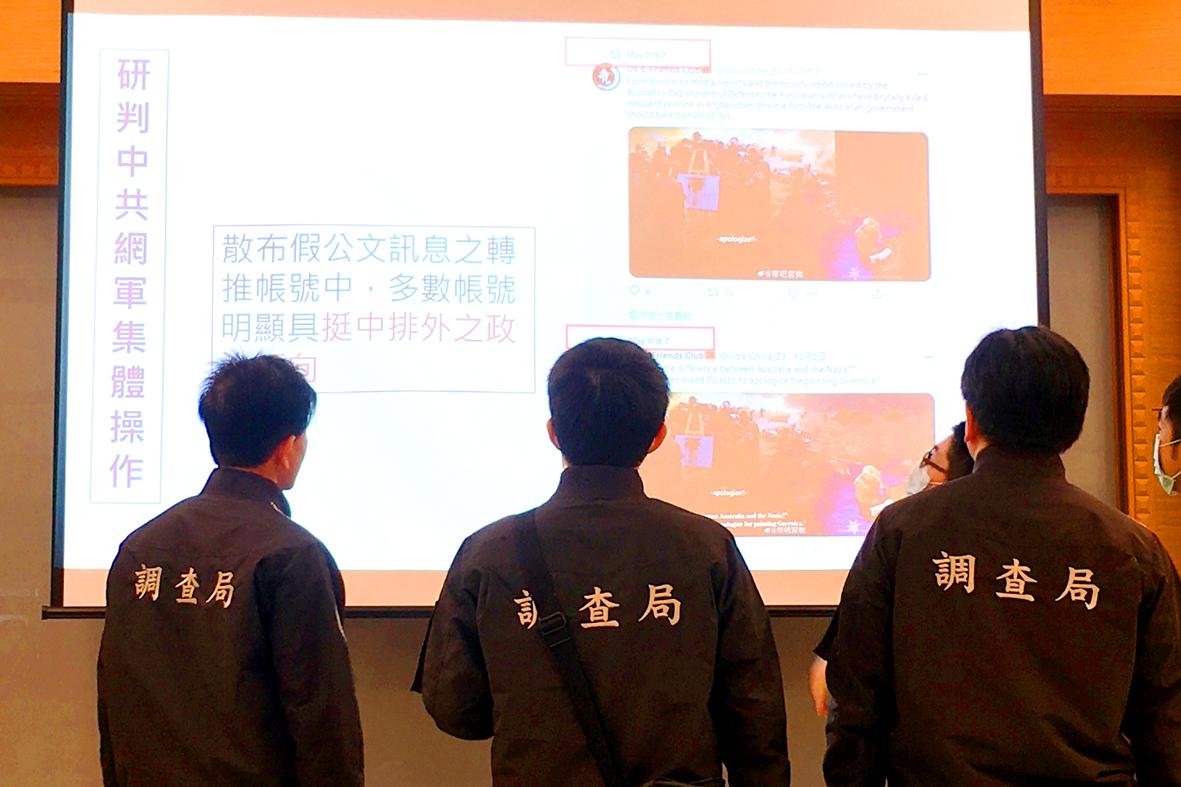Authorities on Thursday arrested three Taiwanese for allegedly working as agents of the Chinese government, spreading disinformation through social media networks, the Ministry of Justice Investigation Bureau (MJIB) said yesterday.
The three allegedly disseminated claims online that Taiwan and the US were collaborating to support pro-democracy protests in Thailand to destabilize its government, the bureau said.
After an investigation, the bureau located the suspects based on their IP addresses, and with the help of local police, it on Thursday carried out searches in New Taipei City and Hualien County, it said.
Two of the suspects were identified by their surnames, Liu (劉) and Yin (尹), with prosecutors looking to charge the trio with breaches of the National Security Act (國家安全法), it said.
Bureau officials said it was the first Internet-related national security case it had investigated, which showed that China had expanded its online disinformation efforts, making them more sophisticated and focused on wider swathes of the international community.
It is also the first documented case of Beijing successfully recruiting Taiwanese as paid online agents of its “cyberarmy,” working to undermine national security and harm Taiwan’s international relationships, bureau officials said.
After joining the operation, Liu and Yin allegedly went to China in August last year to receive training before returning late last year, officials in the bureau’s information and communication security division said.
Liu and Yin allegedly worked as administrators on Diba (帝吧), a Chinese online forum, the bureau said, adding that it uncovered evidence that since last year the two had carried out Chinese propaganda campaigns, targeting Taiwanese by spreading disinformation to sow confusion about the presidential election in January and the COVID-19 pandemic.
The two allegedly created various accounts on Facebook, Twitter, Line and other social media platforms used by Taiwanese, to produce and disseminate disinformation, bureau officials said.
They used the accounts to promote claims of voting fraud in the presidential election and posted images suggesting that there were COVID-19 infections that the government was covering up, the bureau said.
An investigation was launched after a document was circulated online, which purportedly showed an official letter from a bureau deputy section chief to the Presidential Office that asserted the agency was “working with the US government to foment street protests, as part of Thailand’s pro-democracy movement.”
Investigators discovered that the document was first posted on Nov. 20 on a Twitter account using a Thai name.
The post said that Taiwan and the US were “interfering in Thailand’s domestic politics, to create social division and unrest for Thais,” they said.
The bureau said that Liu and Yin also translated the documents into English and Thai.
Source: Taipei Times - 2020/12/12





















